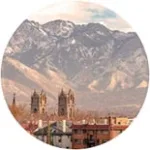
When is the best time of year to visit China? As an experienced China travel agency, it’s a question we’re asked a lot, particularly by western travelers who are visiting China for the first time.
The challenge with knowing when is the best time to go to China is narrowing the answer down to something simple. This is because there are so many things to consider: Seasons, destinations and highlights on your bucket list, personal interests (are you fascinated by history, but not a fan of big cities), how much time you have, and of course, your budget.
In the interest of keeping things simple, we’ve put together this must-read guide on the best time to go to China. It’s perfect for anyone who’s in the ‘plan and research mode’ for a China tour.
As any good travel guide will tell you, an important principle for travel – no matter where you’re off to – is that preparation is key. So dive into our latest blog about the best time to travel to China. That way, when it comes time to book and fly, you’ll be ready to bring those travel dreams to life.
Choose your season: Deciding the best time of year to visit China

There is no one best time to go to China, however the most common advice from those who know is to plan your travel for April, May, September and October. Why? Well, these are the most enjoyable from a weather and season perspective.
Spring falls in April and May (and March), making these months ideal times to visit China. Equally appealing for seasonal travel are September and October, when it is Fall. As the months that land either side of the super busy, crowded Summer, planning your holiday to align with these times will make for comfortable travel weather.
In practical terms, it means avoiding the bitter cold of Winter, which is a feature of high traffic destinations like Beijing or Tibet , or bypassing the searing heat of places like Turpan or even Shanghai with its more humid climate. If you’re uncomfortable in weather extremes and don’t enjoy being either too hot or cold, choosing the best season to travel is an important consideration.
Those less bothered by variations in weather might take their chances and brave the cold during the heart of winter or the enormous crowds of domestic and foreign travelers during high summer. However, if it’s your first time to China, it’s wise to factor in your tolerance for these elements as they can impact negatively on the overall enjoyment of your travel experience.

China by Month
When is it not the best time to go to China?
While we’re on the subject of timing your travel, we knew it wouldn’t be right to leave out important details about when it is not the best time to go to China.
China’s vastness and diversity make it a year-round destination, but for those seeking a refined, comfortable, and crowd-free experience – especially in iconic cities like Beijing, Shanghai, Suzhou, Xi’an, Tibet, Taiwan, Chengdu, and Hong Kong – timing is everything. Here’s a comprehensive guide to the least suitable months and periods for travel, factoring in weather extremes, public holidays, local festivals, and surges in domestic tourism.
1. Avoiding China’s Major Public Holidays and School Breaks
China’s public holidays and school vacations trigger mass domestic travel, leading to packed attractions, inflated prices, and logistical headaches. If you plan a China tour during this time, expect to pay more for any mode of transport, and to be competing with locals on every front. Western travelers who like their space and who aren’t familiar with the crowded nature of travel in China, may just find their travel experience is less like a holiday and more like a crash course in survival.The following periods are best avoided across all destinations:
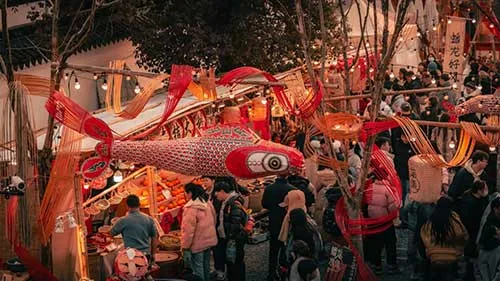
1. Chinese New Year (Spring Festival)
Usually late January to mid-February. The most important holiday in China, with city-wide celebrations, temple fairs, and family gatherings. Expect massive crowds at all attractions and public spaces, as well as closures and overwhelming crowds in transport hubs and tourist sites. The holiday lasts seven days, however, we recommend avoiding the entire period, including three days prior to, and after, this important Chinese celebration (a total of 13 days).
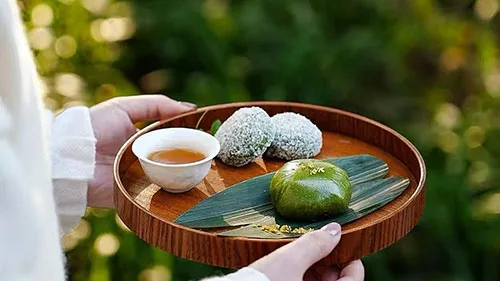
2. Qingming Festival
Early April. A traditional festival for ancestor worship, when families visit and clean gravesites, resulting in busy cemeteries, parks, public areas and heavy traffic on motorway.
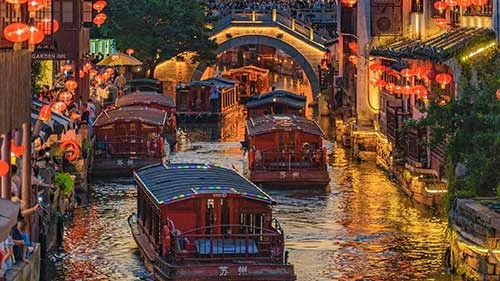
3. Labor Day (May Day)
May 1–5, known as “Golden Week.” One of the busiest travel periods, with huge crowds at all major sites and transportation hubs.
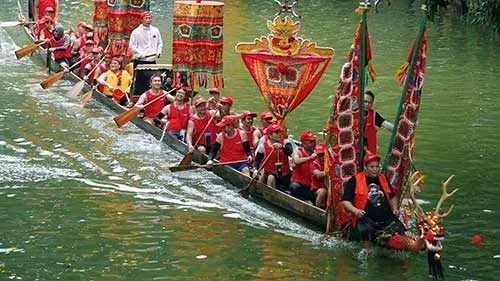
4. Dragon Boat Festival
Late May or June (5th day of the 5th lunar month). Commemorates the poet Qu Yuan with lively dragon boat races and the eating of sticky rice dumplings (zongzi). Riversides and festival venues are crowded with spectators and participants.
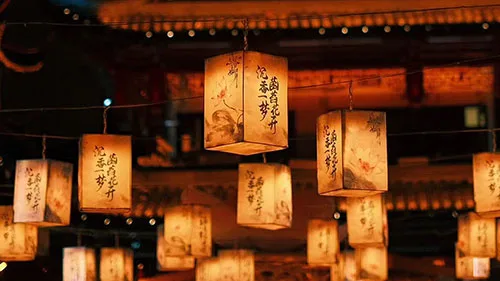
5. Mid-Autumn Festival
September or October (15th day of the 8th lunar month). Celebrated with family gatherings, mooncake sharing, lantern displays, and moon gazing. Parks, waterfronts, and popular city spots are filled with people enjoying lantern carnivals and festive events.
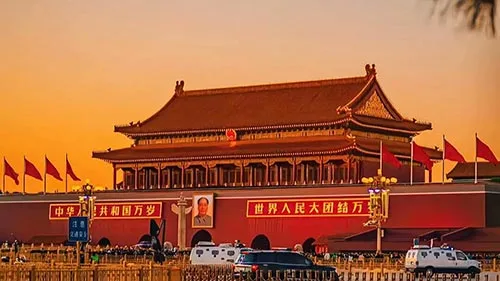
6. National Day (Golden Week)
October 1–7, the busiest travel week of the year.
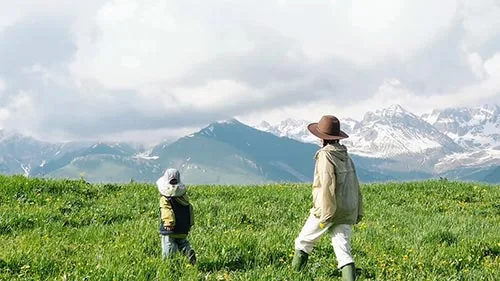
7. Summer School Holiday
Early July to late August. Families and students travel en masse, especially to major cities and scenic spots.
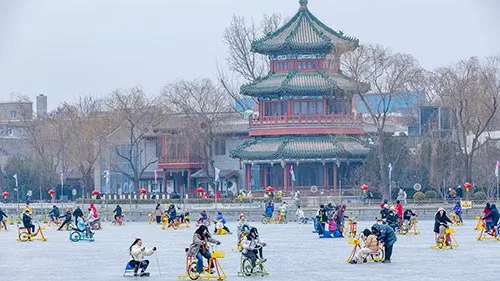
8. Winter School Holiday
Around Chinese New Year; dates vary.
Hong Kong observes its own set of public holidays that see significant surges in local travel and crowded attractions. These include Easter (April 18–21, 2025), Buddha’s Birthday (May 5, 2025), the Chung Yeung Festival (October 29, 2025), and Christmas (December 25–26, 2025). During these periods, popular sites, shopping areas, and transportation networks are especially busy as both residents and visitors participate in festivities and family gatherings.
Again, each individual should be clear about their tolerance for these factors and decide what’s right for them. Asking for advice from others who’ve already done a China tour, or reading reviews, is a great way to find out what does and doesn’t work.
2. Seasonal Weather Tips for Each Destinations
Different weather and seasons bring unique scenery to every city. For example, the Great Wall covered in white snow during winter is a breathtaking sight, but you must also endure the harsh cold. In contrast, the Great Wall in autumn is adorned with a golden armor of leaves, offering a completely different charm. The table below provides an overview of the weather conditions in different seasons to help you choose the best time for your visit.
| City | Worst Months & Conditions |
|---|---|
| Beijing | January & February (very cold, though less crowded); March (sandstorms); July & August (hot, humid, rainy, crowded) |
| Shanghai | June–August (oppressive heat, humidity, heavy rain-especially June & August); December–February (cold, damp, poor air quality) |
| Suzhou | June–July (plum rain season, persistent rain, humidity); July & August (extreme heat, up to 38°C/100°F); January (coldest, though less crowded) |
| Xi’an | July & August (scorching heat up to 40°C/104°F, frequent rain); January (coldest, down to -5°C/23°F) |
| Tibet | February–March (closed to foreign travelers); July & August (peak tourist season, higher prices, crowds); December–February (extremely cold, some areas inaccessible) |
| Taiwan | June–September (typhoon season, heavy rain, high humidity); July & August (school vacation crowds) |
| Chengdu | July & August (hot, humid, rainy); December–February (cold, damp, though less crowded) |
| Hong Kong | June–September (typhoon season, intense heat, humidity, heavy rain); December–February (cooler, crowded around Christmas & Chinese New Year) |
3. Other Local Festivals and Events
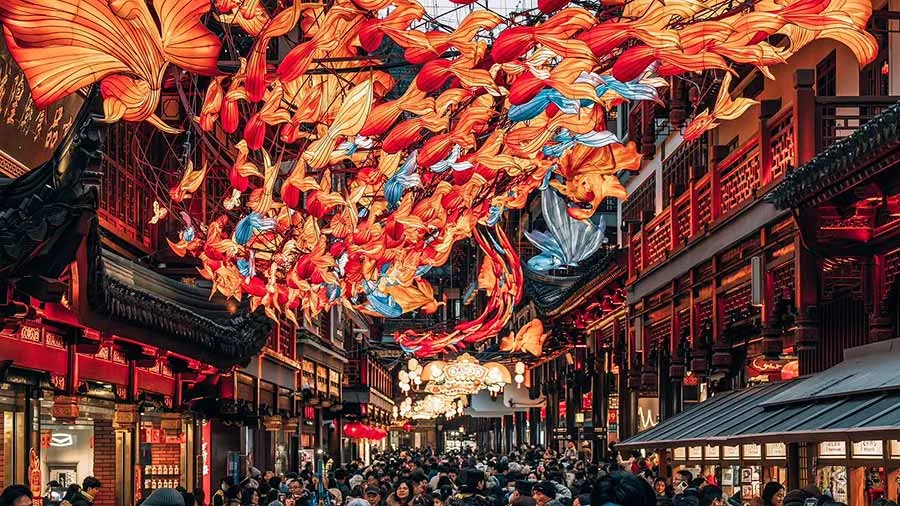
Each city hosts unique festivals that, while culturally rich, bring huge crowds:
- Beijing: Strawberry Music Festival (May), one of China’s biggest music festivals.
- Shanghai: Longhua Temple Fair (March/April), Yuyuan Lantern Festival (Jan/Feb), major music festivals (May/October), Shanghai International Film Festival (June), China International Import Expo (November), Shanghai Art Week and West Bund Art & Design Fair (November), international sports events such as the Shanghai Grand Prix (Formula 1) and ATP Masters 1000 tennis tournament (various months).
- Suzhou: Suzhou Jinji Lake Music Fountain Show (summer weekends).
- Xi’an: Silk Road International Arts Festival (September), Ancient Culture and Art Festival (September), Xi’an International Marathon (October).
- Tibet: Saga Dawa Festival (May/June), when pilgrims flock to Lhasa and sacred sites; Shoton Festival (August), featuring Tibetan opera and giant thangka displays.
- Taiwan: Taipei International Book Exhibition (February), Spring Scream Music Festival (April, Kenting), Taipei Marathon (December).
- Chengdu: Major music festivals (spring/summer), including Strawberry Music Festival and Midi Music Festival; Chengdu Panda Marathon (October).
- Hong Kong: Hong Kong International Film Festival (March/April), Art Basel Hong Kong (March), Hong Kong Sevens Rugby Tournament (March), Cheung Chau Bun Festival (May), Clockenflap Music Festival (late November/early December).
Plan Ahead for the Festivities
These events bring incredible energy and offer a wonderful glimpse into local culture—but they also tend to attract large crowds and limited accommodations. If any of these festivals catch your interest, it’s best to plan ahead. Booking early not only secures your spot but also helps you navigate the excitement with ease and comfort.
4. Final Tips for a Smooth and Enjoyable Trip
- Plan Around Major Holidays: Schedule your visit outside of Chinese public holidays and school breaks to enjoy a more relaxed and exclusive experience.
- Check Event Calendars: Research local festival and event dates in advance-even smaller celebrations can lead to significant crowds and higher prices.
- Monitor Weather Conditions: Pay special attention to weather forecasts, particularly during typhoon season in coastal regions like Hong Kong and Taiwan from June to September.
- Book Early and Strategically: If you must travel during a busy period, reserve accommodations and tickets well in advance. Consider exploring lesser-known attractions or booking VIP and private tours to avoid the largest crowds.
- Stay Flexible: Be prepared for possible changes in schedules or access to certain sites, especially during major events or adverse weather.
What’s the best time to visit China highlights?

China is definitely a country rich in bucket list highlights. Between the Great Wall, Terracotta Army, giant pandas, and some incredible natural wonders, it’s hard enough deciding what to see, let alone pinpointing the ideal time to see them all.
With a view to making your China tour planning easy, here’s our essential China highlights list we recommend to customers. The culmination of over a decade of research, design, planning and delivery of thousands of China tours, it makes an excellent guide for anyone wanting tips for the best time to travel to China, identifying what to see and when.
| Destination | Highlights | Best time to visit | Hottest days | Coldest days | Winter snow |
|---|---|---|---|---|---|
| Beijing | Great Wall Forbidden City Temple of Heaven Summer Palace | May/June Late August September/October | July | January | Yes |
| Shanghai | The Bund | March-May | July – August | January | Rarely |
| Xi’an | Terracotta Army Xi’an City Wall | March – June September – November | July | Dec – January | Yes |
| Chengdu | Panda Bases | March – June September -November | July – August | Dec – January | Rarely |
| Guilin | Li River Yangshuo | April – October | July – August | January | No |
| Zhangjiajie | Zhangjiajie National Forest Park Tianzi Mountain Nature Reserve | September – October | July – August | January | Yes |
| Hangzhou | West Lake Lingying Temple | September – October | July – August | Dec – January | Rarely |
Of course, there are many more destinations in China than those listed here, however if you’re wanting a ‘best of’ experience in select destinations, you’re guaranteed to find more than enough to impress from this list.
What’s the best time of year to visit China for festivals

| Festival | Location | Duration | Time |
|---|---|---|---|
| Water Festival | Yunnan | 3 days | Mid – April |
| Dragon Boat Festival | Throughout China | 1 day | June |
| Naadam Festival | Inner Mongolia | 5 days | July or August |
| Sho Dun Festival | Tibet | 7 days | Mid – August |
| Mid – Autumn Festival | Throughout China | 1 day | Mid – September |
| Chong Yang Festival | Throughout China | 1 day | Mid – September |
| International Ice and Snow Sculpture Festival | Harbin | 2 months during winter | January – February |
There are literally hundreds of festivals reflecting every conceivable interest and the 55 ethnic minority cultures in China. Be sure to do your research and ask your China travel agency to advise how you can integrate festival time into your tour itinerary.
Pandas, river cruises, the Great Wall and more: How will I know if it’s the best time to travel to China?

Clearly the decision around the timing of your China tour isn’t completely straightforward, which is why it’s worth considering a tour with a theme.
If you think a theme tour might just tick your China travel box, booking the best time to go will not only enhance your experience, there’s a better chance your vacation will make for beautiful travel memories.
Recognizing there’s a no-one-size-fits-all solution to creating the perfect tour package, we’ve devised options that meet the specific interests of our customers. Choose from tours perfect for families, iconic highlights like the Great Wall and Silk Road, or amazing natural icons such as the Yangtze River.
Explore these options for ideas.
| Tour theme | Best time to go to China | Why go | When to avoid |
|---|---|---|---|
| Yangtze River cruise | April – May June – August October – November | Beautiful scenery History Minority cultures | Winter |
| Pandas (Chengdu) | March -May September – November | Best place in the world for seeing pandas | Good all year |
| Great Wall (various locations) | April – May September – October | Incredible history Bucket list experience | Good all year |
| Silk Road (various locations) | August – October | Incredible history Bucket list experience | Summer Winter |
| Tibet | May – October | Enriching culture Bucket list experience | Winter |
| Zhangjiajie | April October | Experience natural China | Winter |
Each traveler has their own preference for holiday experiences, so before embarking on the holiday of a lifetime with a trip to China, spend time researching and asking questions to be sure that both how and when you travel meets your expectations.
If you’re contemplating a tour, why not simplify the big decisions about the best time to travel to China. Having served customers from around the world, including the United States, United Kingdom, Australia, Canada, we understand it can be hard knowing what to see and when. Research, plan, and explore the options available in our selection of best China tours, or create your own custom experience with the help of travel consultants who know and care about every detail. We welcome online enquiries via direct contact and respond within 24 hours.


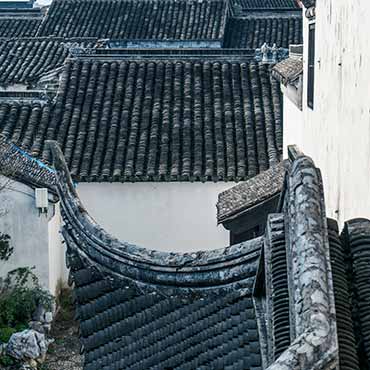
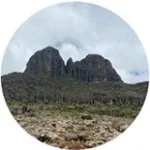
 Thanks China Tours
Thanks China Tours


